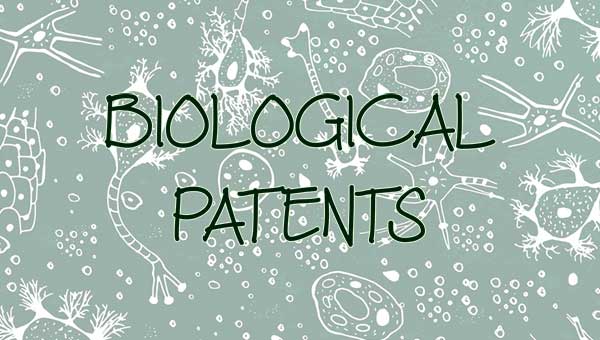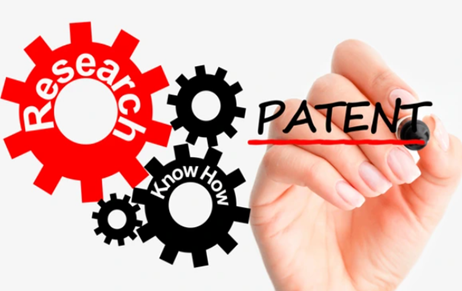Patented, which means giving an exclusive right to the patentee to protect their invention from…
Analysing the Legality and Ethical Debates Surrounding Biological Patents
In today’s day and age, scientific innovations are developing at a breakneck speed. A lion’s share of this development is facilitated by the biotechnology sector. In a broad sense, biotechnology can be defined as an area in biology that uses biological elements and living organisms to create products for commercial purposes. Such products may include the production of antibiotics, genetically modified seeds, or hormones. Biotechnology is also used to treat several diseases such as AIDS and diabetes. Patents carry great relevance in the field of biotechnology. Biotechnology patents fall under the ambit of utility patents and it gives its owner an exclusive right to prevent others from making, using, or selling an invention or a manufacturing process. Nucleotides, amino acid sequences, modification of seeds or crops, and altered microorganisms are some of the prominent examples of patentable biotechnology. The patentability of biological beings has been subject to heated debates for several decades. While many argue that the objective behind patenting biotechnological inventions is to foster further innovation, on the other hand, it has also been debated that it is not possible for patent laws, biotechnology, and ethics to exist in a single paradigm.
From an international perspective, the TRIPS agreement has laid down various conditions that have to be satisfied in order to patent a particular invention. Article 27 of the TRIPS agreement deals with patentable subject matters. Under this article, a prerequisite is such that the products or processes should be novel, must have an inventive step, and should be capable of industrial application in order to be patented. More specifically, Article 27(3) of the TRIPS agreement sheds light on the patentability of plant and animal inventions or the lack thereof. The TRIPS agreement states that any invention is patentable if they meet the prerequisite standards set for patentable subject matters (which includes novelty, having an inventive step, and has industrial application), however, it is also suggested that WTO members may also exclude plants and animals other than microorganisms and biological processes that are used for the production of plants or animals, excluding non-biological and microbiological processes. Essentially, this means that WTO members may patent an invention that could be a non-biological or a microbiological process as long as it is novel, consists of an inventive step, and has some industrial applicability. Biotechnology has also immensely contributed to India’s economy. Accordingly, the Indian patent act, 1970 regulates the patentability of biological inventions. Section 3(c) of the patent act, 1970 mentions that “discovery of any living thing or non-living substance occurring in nature” cannot be patented. Moreover, section 3(j) of the Act also states that plants and animals except for microorganisms but including seeds, species, plant varieties, and essentially biological processes for the production or propagation of plants and animals cannot be patented as well. Further guidelines regarding the patentability of biological inventions are elucidated in the Indian Biotechnology Guidelines, 2013 ad the Manual of Patent Office Practice and Procedure 2005. The conditions that determine the patentability of biological inventions that are prescribed in the Manual of Patent Office Practice and Procedure are quite similar to the TRIPS guidelines. It mentions that DNA, plasmids, and processes for manufacturing the same are patentable if they consist of an inventive step which indicates a substantive level of human intervention. The manual mentions that a genetically modified sequence/amino acid sequence is patentable if it involves an inventive step if it is novel and comprises of an inventive step along with industrial applicability. Thus, if the recombinant DNA, plasmids, or amino acid sequences are novel, can be claimed to be protected, comprises of an inventive step, and has industrial applicability, it is patentable.
While biological inventions are a boon to mankind, there have been heated debates over the patentability of the same. One side of the debate contends that patenting such biological inventions is imperative in today’s day and age since it fuels further research and development. It is argued that if the creators of such biological inventions are recognized and are monetarily incentivized, the monetary gains could be reinvested in further research and development which would eventually facilitate the creation of new biological inventions that could be of use in several industries, thus benefiting mankind. With the onset of the pandemic, biological research has taken the forefront. Thus, patents pertaining to medicines or vaccines that can be manufactured with the help of biological elements could lead to creating breakthrough inventions that would greatly benefit the healthcare industry. On the other hand, several have opposed the idea of biological patents. It has been argued that patents act as an impediment to healthcare access. Imposing patents on biological innovations that are intended to benefit mankind would keep drug prices high, thus, acting as a barrier to access healthcare. This would make it increasingly difficult for low-income and developing counties to afford such drugs. For example, Antiretroviral (ARV) therapy, a treatment that is used to retard the progression of the HIV virus was a pharmaceutical product (that is also regarded as a biological invention) that could not achieve equal distribution in South Africa due to stringent patent laws and unaffordability issues. Furthermore, this could also lead to pharmaceutical conglomerates having complete monopoly over a particular biological invention thus restricting other countries or researchers to develop, manufacture, or research on the patented biological inventions. Lastly, an ethical paradigm of the debate contends that imposing patenting of biological inventions could lead to the “commoditization” of life forms. This side of the debate argues that life forms, no matter how basic they are, occur naturally in our environment and thus cannot be marketed. Despite the debate surrounding the patentability of biological inventions, it is a fact that biotechnology has greatly contributed to several economies and has created groundbreaking discoveries which could benefit mankind. However, the disadvantages of biological patents cannot be completely disregarded as well. With the field of biotechnology developing at a breakneck speed, it has become imperative to balance ethical and legal issues related to biological patents without tampering with the possibilities of innovation.
Author: Sanjana, a BBA LLB student of Symbiosis Law School (Hyderabad), currently an intern at IIPRD. In case of any queries please contact/write back to us at vidushi@khuranaandkhurana.com.




